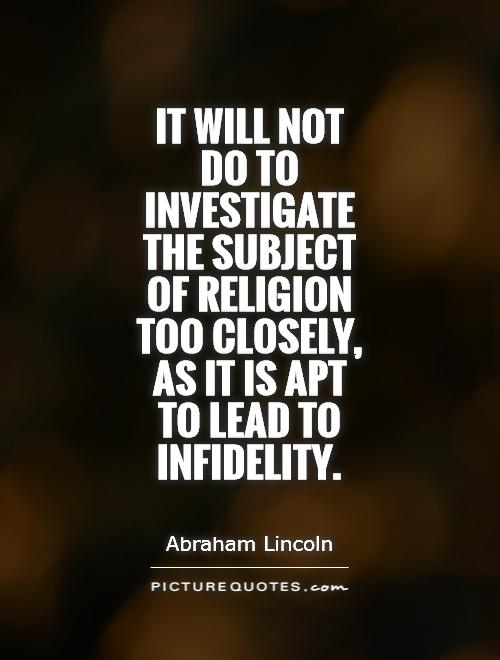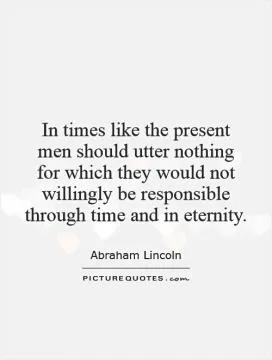It will not do to investigate the subject of religion too closely, as it is apt to lead to infidelity

It will not do to investigate the subject of religion too closely, as it is apt to lead to infidelity
Abraham Lincoln, the 16th President of the United States, is often remembered for his strong moral compass and deep religious beliefs. However, Lincoln's relationship with religion was complex and nuanced, and he was known for his skepticism and questioning of traditional religious beliefs. In fact, Lincoln's views on religion were so unconventional for his time that he once famously remarked, "It will not do to investigate the subject of religion too closely, as it is apt to lead to infidelity."Lincoln's skepticism towards organized religion can be traced back to his early years growing up in a deeply religious household. His parents were devout Baptists, and Lincoln himself was raised in the Christian faith. However, as he grew older and began to question the teachings of his church, Lincoln's faith began to waver. He was known to be a voracious reader and thinker, and he was not afraid to challenge the beliefs of those around him.
Despite his skepticism, Lincoln never completely abandoned his belief in a higher power. He often spoke of a "mysterious power" that guided his actions and believed in the existence of a divine providence. However, he was wary of organized religion and the ways in which it could be used to manipulate and control people. He believed that true faith should come from within, rather than being imposed from without.
Lincoln's views on religion were shaped by his experiences as a lawyer and politician, where he saw firsthand the ways in which religion could be used to justify injustice and oppression. He was deeply troubled by the hypocrisy of those who claimed to be religious but acted in ways that were contrary to the teachings of their faith. This led him to question the validity of organized religion and to seek a more personal and authentic connection to the divine.












 Friendship Quotes
Friendship Quotes Love Quotes
Love Quotes Life Quotes
Life Quotes Funny Quotes
Funny Quotes Motivational Quotes
Motivational Quotes Inspirational Quotes
Inspirational Quotes